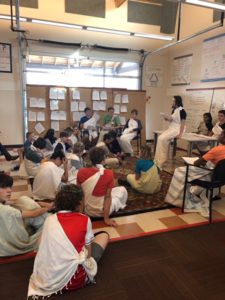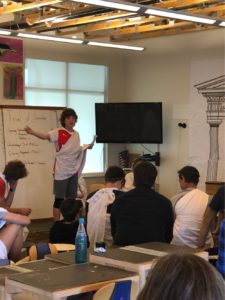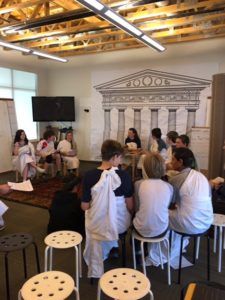In middle school this session, we reenacted the Trial of Socrates.
While we had a serious focus on Greek Civilization, even more energy was injected into the art and science of logic and rhetoric, including Socratic Smackdowns, Finding Fallacies and other challenges designed to arm Eagles with better argumentative skills (our apologies to parents!)
Eagles also explored the power of archetypes, as they rode the line between truth and fiction to craft their own Greek Myths.
Our exhibition featured not one, but two reenactments of Socrates’ Trial.
The verdict? Two separate courts found Socrates innocent of corrupting the youth, believing in false Gods, and “promoting the Rule of 30” by narrow margins. Strong arguments on the part of the defense and prosecution left the jury questioning whether history got it right or not!
At the end of the trial, Eagles shared the following “lessons learned:”
- The Exhibition showed who prepared and who didn’t, especially when it came to questioning Socrates (parents – it’s also well worth noting the Session 360’s that show how much effort your Eagle is investing in quests.)
- Democracy means different things to different people. For some, it is simply not having a dictator; others see it as all citizens having equal powers.
- Session Three is not a ‘holiday session’ but just as challenging and tough as other sessions.
- Ancient Athens was not a democracy in the modern sense because many did not have the right to vote.
- Because so few had the right to vote, and it was done in person, it was harder to rig an election.
- It’s much harder to craft a powerful, short myth than it first appears.
The power of logic and evidence. Using Ethos, Pathos and Logic to win the day. The power of myth to shape lives, in ancient times and today.
Quite a lot of learning in a three week period!


